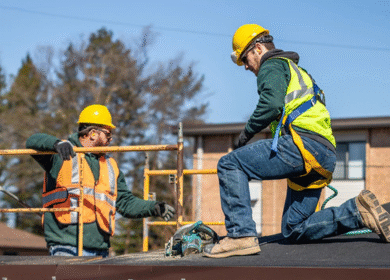The Essential Role of HVAC Contractors in Commercial AC Installation

In today’s fast-paced business environment, maintaining a comfortable indoor climate is crucial for productivity and employee satisfaction. A well-functioning air conditioning (AC) system not only enhances comfort but also ensures energy efficiency and operational reliability. The installation of commercial AC systems is a complex process that requires specialized knowledge and expertise, making the role of commercial HVAC contractors indispensable.
Understanding the Importance of AC Installation
Air conditioning systems play a vital role in regulating temperature, humidity, and air quality in commercial spaces. Effective ac installation is essential for:
- Comfort: A properly installed system ensures optimal temperature control, contributing to a comfortable work environment.
- Energy Efficiency: Efficient AC systems can significantly reduce energy costs, aligning with businesses’ sustainability goals.
- Health and Safety: A well-functioning HVAC system filters pollutants and allergens, promoting a healthy workspace.
Given these factors, selecting the right commercial HVAC contractor for AC installation is critical for long-term operational success.
The Expertise of Commercial HVAC Contractors
Commercial HVAC contractors bring a wealth of knowledge and experience to the installation process. Their expertise encompasses several key areas:
System Selection and Design
One of the primary responsibilities of a commercial HVAC contractor is to help businesses choose the right AC system. This involves assessing various factors, including:
- Building Size and Layout: The contractor evaluates the dimensions and design of the space to determine the required cooling capacity.
- Energy Efficiency Ratings: They consider the system’s energy efficiency ratings (such as SEER) to ensure compliance with industry standards and regulations.
- Specialized Needs: Some businesses may have unique requirements, such as server rooms or manufacturing areas that demand specific cooling solutions. A commercial hvac contractor can recommend tailored systems to meet these needs.
Installation Planning
Proper installation planning is critical to the success of any AC installation project. This includes:
- Site Assessment: The contractor conducts a thorough assessment of the installation site, identifying potential challenges and ensuring that all equipment can be installed efficiently.
- Coordination with Other Trades: Commercial HVAC contractors often work alongside electricians, plumbers, and construction teams to ensure seamless integration of the AC system within the overall building infrastructure.
- Timeline Management: Effective project management ensures that installation timelines are met, minimizing disruptions to business operations.
Technical Expertise
The installation of commercial AC systems involves intricate technical knowledge, including:
- Ductwork Design and Installation: Proper ductwork is crucial for effective airflow. HVAC contractors design and install duct systems that optimize air distribution throughout the space.
- Refrigerant Handling: Handling refrigerants requires specialized training and certification. Contractors ensure compliance with regulations regarding refrigerant use and recovery.
- System Testing and Calibration: After installation, HVAC contractors conduct thorough testing and calibration to ensure that the system operates efficiently and meets the specified performance criteria.
Compliance with Industry Standards
Commercial HVAC contractors are well-versed in local building codes and industry regulations. Compliance is essential not only for safety but also for legal and financial reasons. Contractors ensure that the AC installation adheres to all relevant standards, including:
- Building Codes: Compliance with local building codes is mandatory for the safety and integrity of the installation.
- Environmental Regulations: Contractors ensure that the systems installed comply with environmental regulations regarding emissions and energy efficiency.
Ongoing Maintenance and Support
The role of commercial HVAC contractors extends beyond installation. Many contractors offer ongoing maintenance services, which are crucial for the longevity and efficiency of the AC system. Regular maintenance includes:
- Routine Inspections: Scheduled inspections help identify potential issues before they become major problems.
- Filter Replacement: Maintaining clean filters is essential for efficient airflow and air quality.
- System Upgrades: As technology evolves, HVAC contractors can recommend upgrades to improve system performance and efficiency.
Conclusion
The installation of commercial AC systems is a critical investment for any business. The expertise of commercial HVAC contractors is essential to ensure that this process is carried out efficiently and effectively. From system selection and installation planning to compliance and ongoing maintenance, these professionals play a vital role in ensuring optimal indoor climate control. By partnering with a reputable commercial HVAC contractor, businesses can achieve energy-efficient, reliable, and comfortable environments that foster productivity and employee satisfaction.



